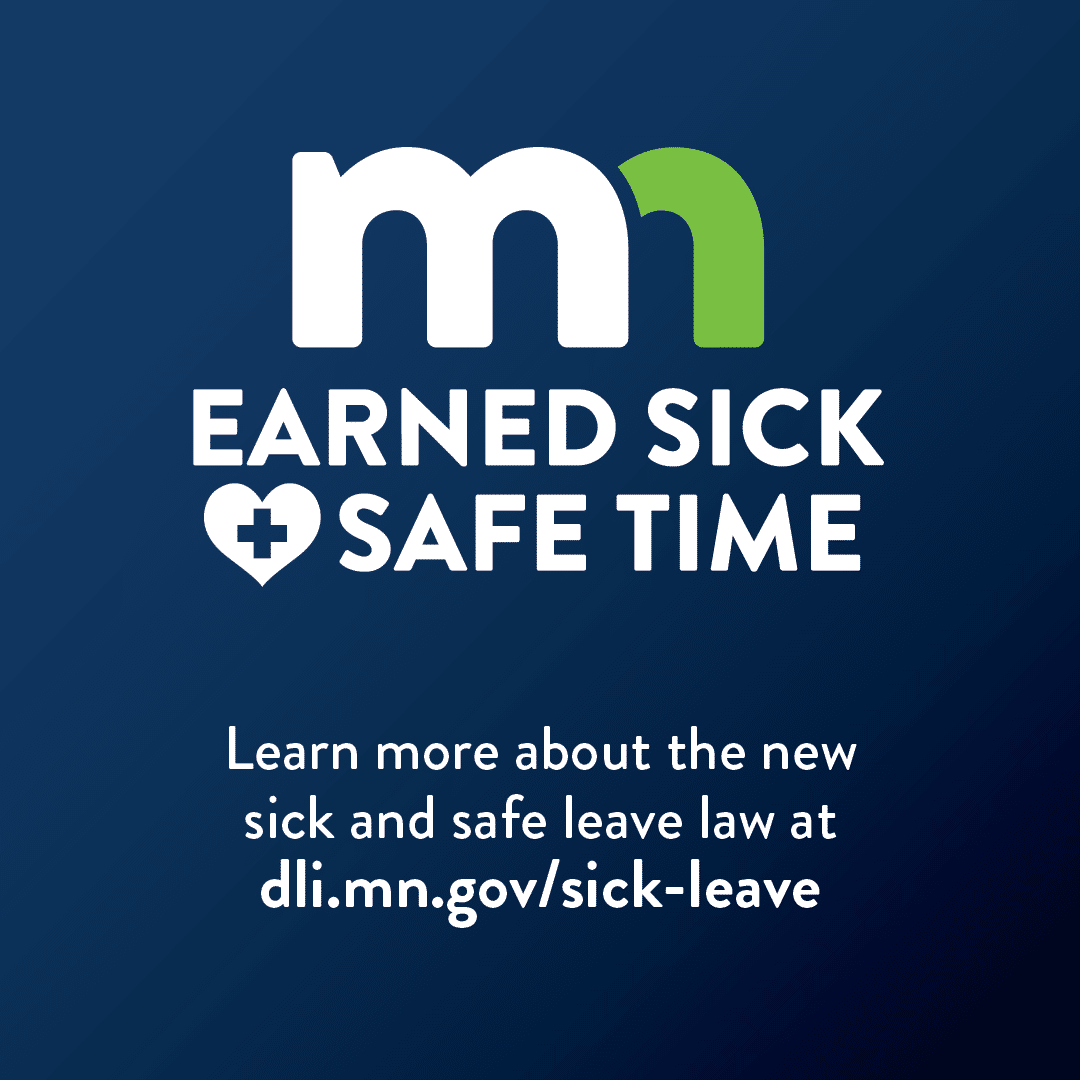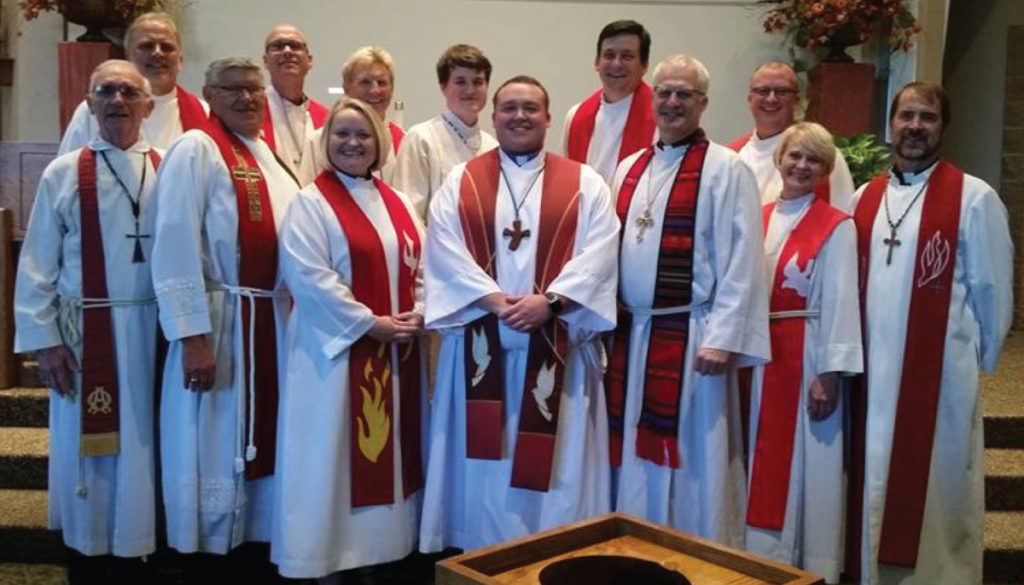Effective Jan. 1, 2024, Minnesota’s earned sick and safe time law requires employers to provide paid leave to employees who work in the state.
- Minnesota’s Earned Sick and Safe Time (ESST) Law
- MN Department of Labor and Industry ESST Toolkit
- FAQ’s about ESST
- ESST Poster for Workplaces
This new law applies to a congregation’s employment agreements. Congregations should look at their employment policies and practices, and all employees’ paid time off. If your congregation already has a plan in place that satisfies the new law (ESST) time off requirements for both part-time and full-time staff, your congregation may be compliant with this new law. Documentation is essential in policies that are already in place, or for any new policies your congregation might offer. Sick and safe time used needs to be documented on an employee's pay stub. It is this process of documentation that may be new to some and will involve additional attention to detail and record-keeping.
Who is eligible for sick and safe time?
An employee is eligible for sick and safe time if they:
- work at least 80 hours in a year for an employer in Minnesota;
- and are not an independent contractor.
Temporary and part-time employees are eligible for sick and safe time.
For congregations, an eligible person might be anyone who receives a W-2 form. Anyone who receives a 1099 form is an independent contractor who might not be eligible under this new law. Please refer to the MN Department of Labor and Industry’s website for the definition of an “employer” and an “employee.”
How much sick and safe time can employees earn?
An employee earns one hour of sick and safe time for every 30 hours worked and can earn a maximum of 48 hours each year unless the employer agrees to a higher amount.
Questions?
ESST resources are available online at www.dli.mn.gov/sick-leave.
Email: [email protected]
Phone: 651-284-5075
This article is not a source of law or legal advice and does not consider the applicability or effect of any other law or regulation. For additional questions, please consult with an attorney. To review Minnesota’s ESST requirements, see Minnesota Statutes 181.032 and 181.9445-181.9448.



